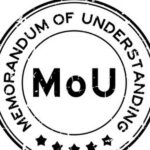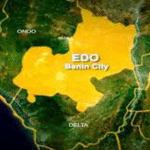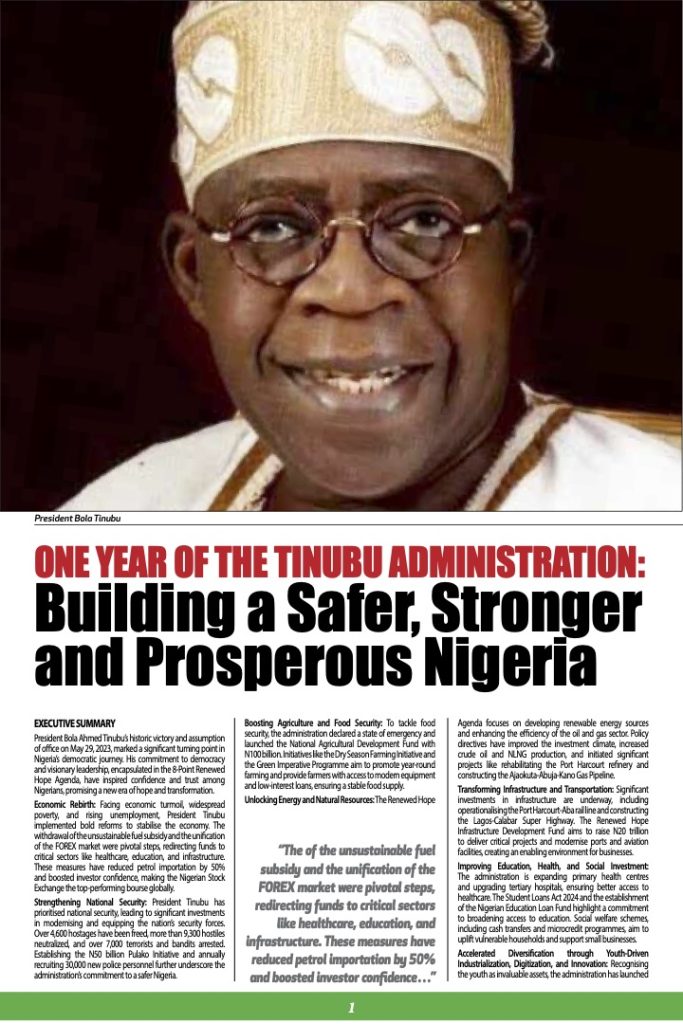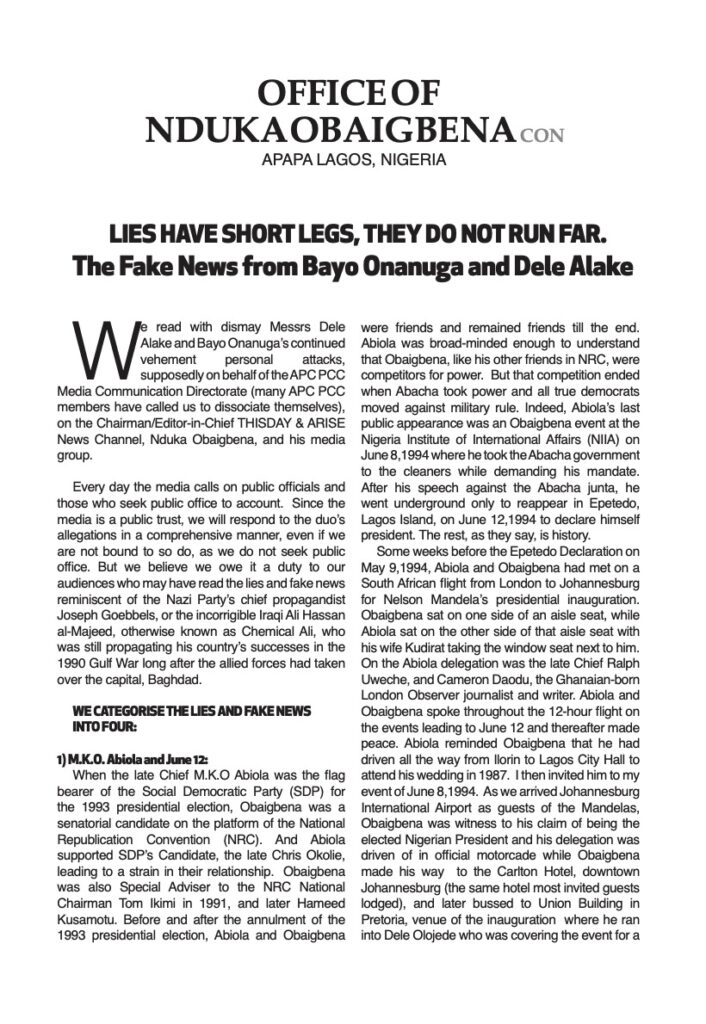Latest Headlines
Remembering A Nation

Femi Akintunde-Johnson
While rummaging through my old files and folders, I stumbled upon this lamentation written in the Counterpoint column of 26 November, 1996. It was titled ‘A Nation Without Tomorrow ‘. It was published about two years after the criminal pogroms that ravaged the small Central African country, Rwanda. With a population estimated at less than 12 million as at 2016, Rwanda is perhaps the fourth smallest country in mainland Africa, and is also landlocked. It stopped oozing blood and gore in 1994, at the cessation of a vicious civil war between the majority Hutus and the Tutsis.
Twenty eight years ago, the future looked gloomy, and threadbare for Rwanda, and neighbouring countries that felt the shocking spillovers of the bloody affairs. Incredibly, we have seen again and again, the redemptive dynamics of humanity that propel us to resist extinction by digging deep within our ancestral core, and reinventing our lands and resources. Today, Rwanda has bounced back – though not yet Uhuru, nor Eldorado – the signs of recuperation and revitalisation are steady, and encouraging.
Beyond the pale of self-inflicted atrocities, the people of Rwanda are learning to live together in peace, tolerance and mutual understanding – showing their bigger African brothers and sisters the undying essence of the truism: when there is life, surely there is hope…and opportunity for progress and success.
But it didn’t seem likely in 1996 when the following piece was written. Join me to recollect:
“A sob. Uncontrolled and unstoppable. A tear. Lonely and strange. These twin-mascara of emotions powdered my conscience. I sobbed and a tiny guilty tear dropped – from where, I couldn’t imagine. I was glued to a special CNN coverage of the waste in Central Africa entitled Refugees of Rwanda and Crisis in Central Africa.
They were brown-black like me, with deep stentorian features, like me, and I dare say, like you. Full of fear, hunger, pain and destined towards nowhere, the people of Rwanda, thousands of kilometres away from our consciousness, have been trekking to and from their homelands, flooding into violent forests and murderous refugee camps. And this has been going on for three years!
The world knew, the United Nations knew, the so-called vanguards of human rights and maestroes of civilisation knew that the minority Tutsis of Rwanda have been killing the majority Hutus who are unfortunately misplaced in the balance of political power sharing. And that in violent retaliations, the Hutus have also massacred Tutsis – and the ding-dong pendulum of genocide and infanticide has never since ceased to swing.
The world knew and only coughed. Before Rwanda became the world’s worst humanitarian outrage, our world saw the spectacle as a bizarre television soap opera produced and directed by CNN, Sky News and other multi-national news networks for the viewing pleasure of the more privileged. And we nodded our symbolic sympathy.
Before Rwandans began to die in an unprecedented orgy of pain and mindless carnage; the world, our world, knew that the keg would explode – and we did nothing. We simply sympathised. The President of the United States of America, Bill Clinton, told a shocked world only recently that the world’s worst catastrophe is now in Rwanda (especially, within the once scenic plains of Goma, Zaire) where one soul is lost every minute.
And his government is still busy setting up command-structure and negotiations with Uganda. Perhaps, he still does not appreciate the gargantuan dehumanisation playing out in Central Africa. Sir, what you mean is that 1,440 souls are dying every bleak leaderless day.
But the world which ignores the bestiality of Rwanda to cackle with the spurts of communal distractions in Haiti, Bosnia Herzegovina, Somalia, Afghanistan, Nigeria, etc., is a wicked world. Two years ago, Rwandan leadership and its fighters and thugs needed the reprimands and spanking of a God-fearing and visionary world – the world, our world, kept quiet. Two years ago, valiant members of Doctors Without Borders, Care, World Relief, and other aid organisations, cried and warned about the breakdown of life and law; they begged and prodded the world to take a critical look at the devastation wrecking the tiny Central African countries of Burundi and Rwanda. But the world shut her eyes – minding her own business.
Suddenly, barely ten days ago, the United Nations dropped its politics of one-eyedness and self-importance; America suddenly became less lyrical and evasive; Europe got besmeared with guilt. And Africa? Of course, the sleeping giant sleeps on.
Dear Nigerians, if you have seen the picture of pain in Rwanda; if you have read the prose of perdition about Rwanda; if you’ve heard the tale of terror in Rwanda, please, pause to pray for the souls of the dead and the dying. Pray for the survival of the living dead: pray, pray, and then DO something. In Nigeria, there are agencies that can identify your concerns, and channel your gifts – cash, materials or medicine to the shattered souls of Rwanda. The UNHCR (United Nations High Commission for Refugees), (late) Ambassador Segun Olusola’s African Refugees Foundation (AREF), the Red Cross, etc., have offices in Lagos, and will be glad to assist your efforts.
Yes, Nigeria and Nigerians have their own problems. We know; and we thank God that many of us still hope for a better tomorrow. In Rwanda the nation and its peoples have no tomorrow. For them today is uncertain. Deaths in several vessels arrest their spirit and quest for peace and home.
In Goma, in Kigali, in Bujumbura – the common sight is not sunlight, it’s not Santa Claus, it’s not Christmas trees; it’s not laughing kids; not stately elders and nubile maidens. No. Not in Kigali, not in Bujumbura; certainly not in Goma. In those red-ribboned towns, only faint remembrances of good neighbourliness, of joyful expectations, of family merriment possess their choleric thoughts.
Not any more the joy of a father receiving the welcoming wails of his children; not any more the nagging fondness of wives taken for granted; not anymore the raucous banters in neighbourhood beer parlours. In Rwanda, in Burundi and the border towns of Zaire, the most common sight is death, cholera, missing fathers, fatherless babies, bloated field of corpses, dying mothers, fatigued doctors and a huge hopeless hole in the shameful face of the world.”

















